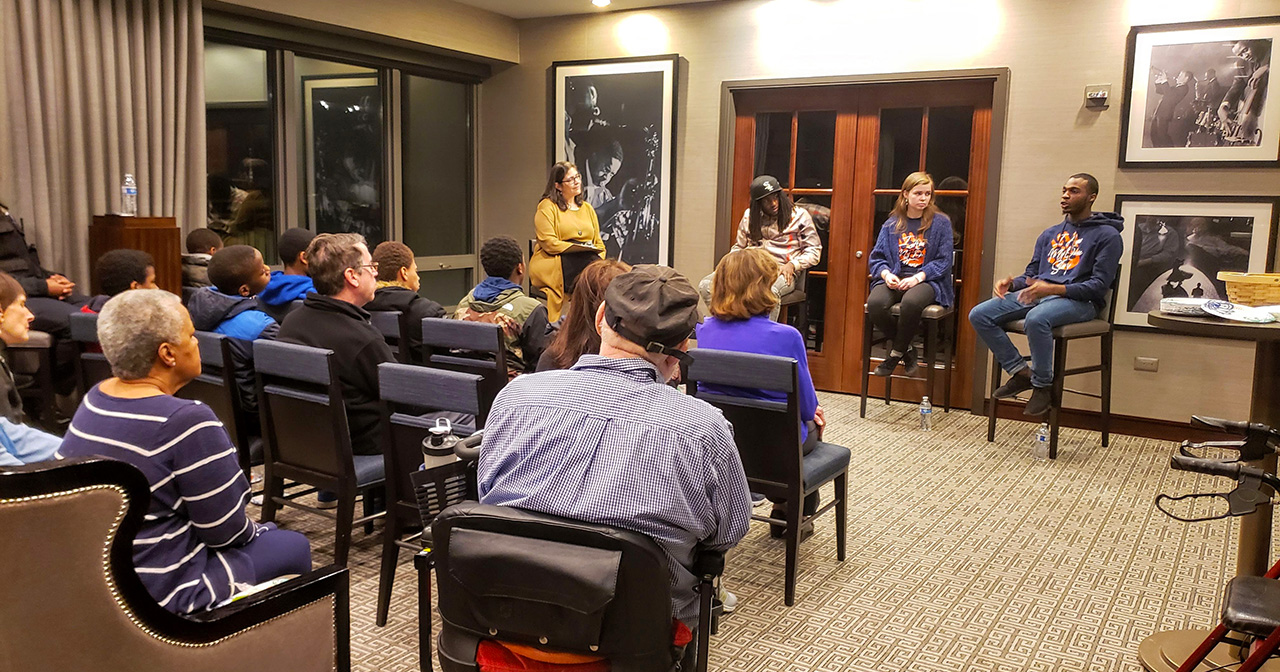Last week, Storycatchers young people and apprentice teaching artists spoke to more than 150 people in three different settings on the importance of youth voices.
At Victory Gardens.
During the post-show discussion following a matinee of Victory Gardens Theater’s production of PIPELINE, Princess and Shatonia of Changing Voices spoke to the realities of the school-to-prison pipeline. The play, which tells the story of an African American teenager and the pressures he endures after a controversial incident that threatens him with expulsion, inspired Princess and Shatonia to share with the audience their own stories of navigating an educational system that did not offer the resources they needed to feel safe at school and of the challenges they faced growing up in Chicago. Through their success at an alternative high school and at Storycatchers, they have remained out of the school-to-prison pipeline and now have the tools and drive to see their futures as a nurse and an architect.
At 130 N. Garland.
A few days later, upon the invitation of a Storycatchers board member, our three apprentice teaching artists, all of whom have been through Storycatchers programming and are now learning to facilitate it, spoke to youth and adults alike at the beautiful 130 N. Garland residential tower on why telling their stories was transformative. A group of seventh-grade boys attended the panel, and one boy asked if this is a program for people who’ve done bad things. Apprentice teaching artist Jacob replied, “this is a program for people who’ve made mistakes and want to start making better choices.”
At the Illinois Holocaust Museum.
Rounding out the week, Victory Gardens and Storycatchers brought their conversation to the Illinois Holocaust Museum and Education Center where actors performed scenes from PIPELINE and Changing Voices Program Manager Cristina White joined Princess to discuss their reactions to the play. Cristina spoke to her previous experience as a Suspension Intervention Specialist and special education teacher and the risk of teacher burnout that is articulated in the play. Audience members also connected the crisis of mass incarceration to the museum’s current special exhibit ‘Purchased Lives: The American Slave Trade from 1808 to 1865,’ stating that, “both prisons and slavery are about big business, not about people.”
Which is one of the reasons Storycatchers youth need to be center stage–so that people hear the truth of oppressive systems and are empowered to demand change. Sincerest appreciation to our partners and supporters who platform these voices and to all of you who listen.
Next steps.
Interested in getting to know these inspirational young people better? Check out our Events page for an upcoming opportunity. And make sure you’re reading our newsletter to follow their stories and successes.




